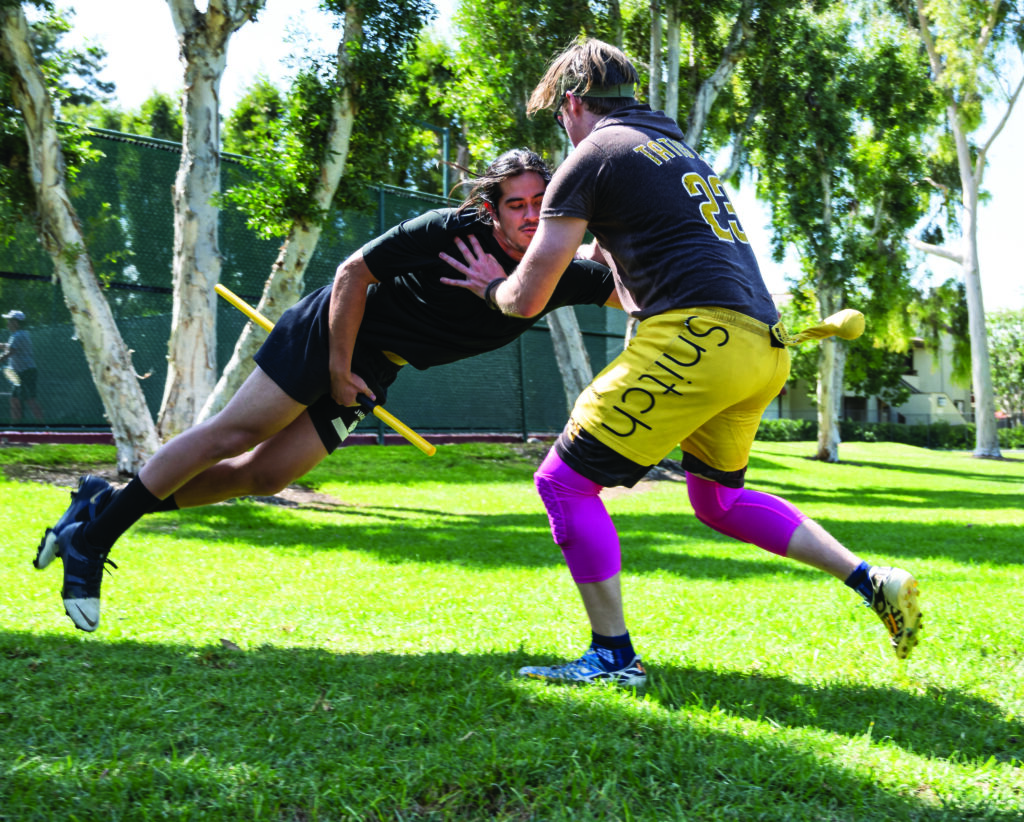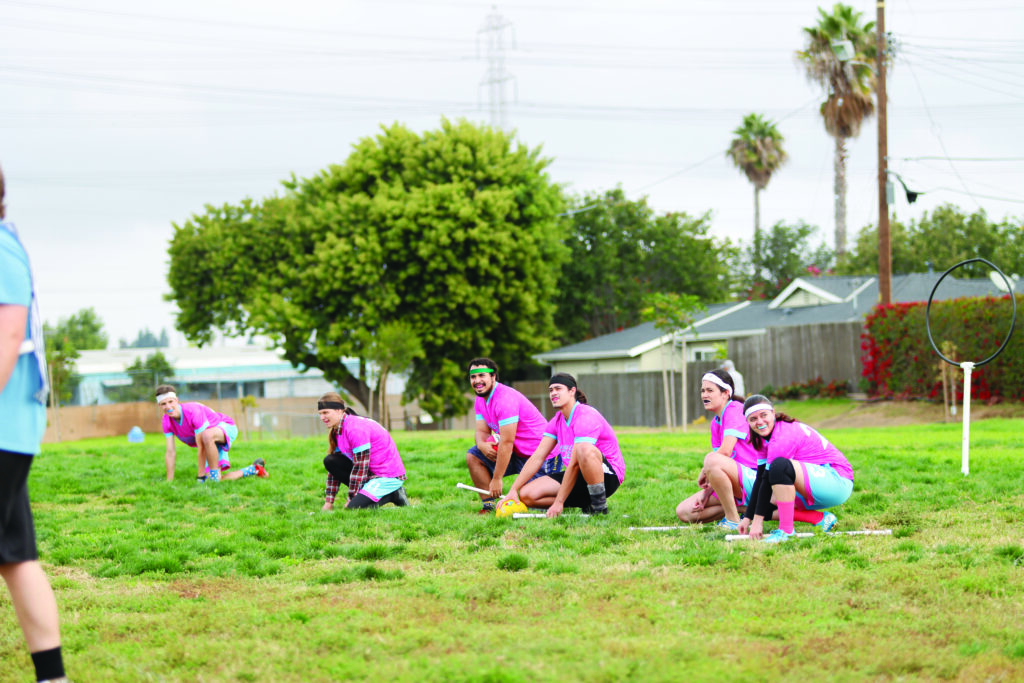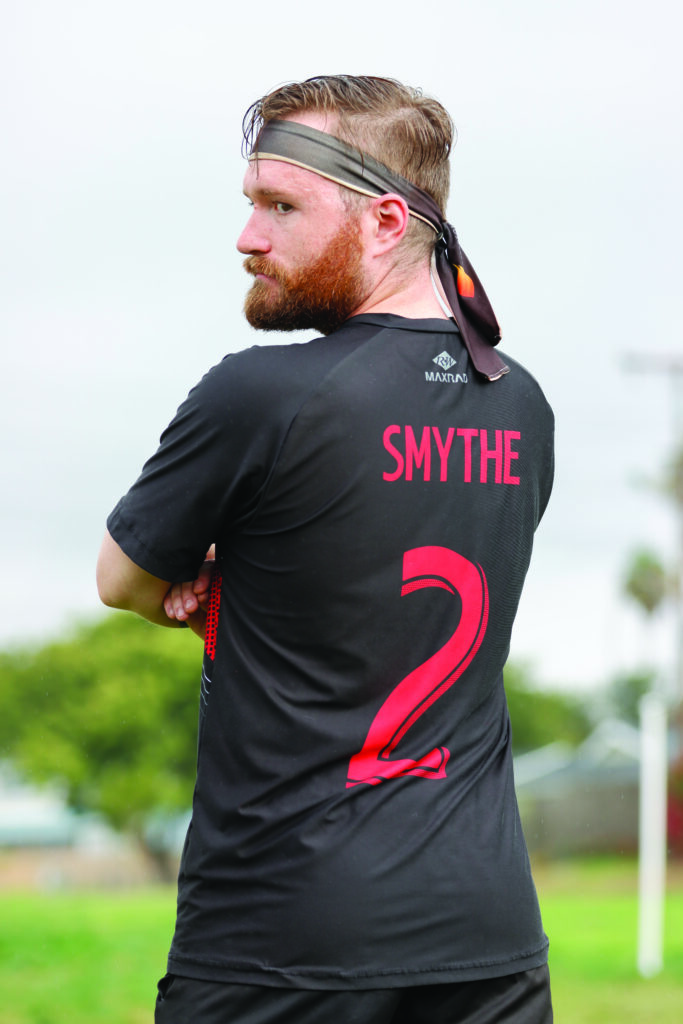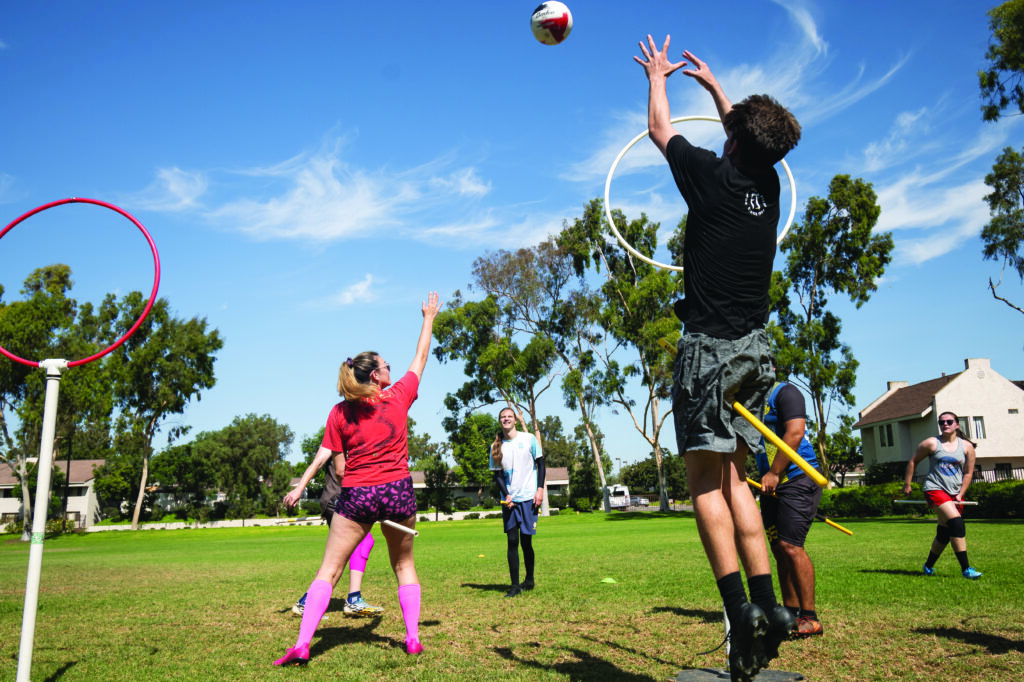
Quidditch is familiar to most as a broom-flying, cape-wearing game of dodgeball, but the league sport played by muggles is a little less known than its magical counterpart.
It comes from J.K. Rowling’s Harry Potter series though, there is nothing fictitious about this real-life recreation.
Both versions are ball-based games, but the real-world adaptation has had to adjust to the rules for obvious reasons.
Adaptations vary in action, but almost all of them focus on the sport rather than the fiction. This is not a role-playing game. It bears a close likeness to an intramural sports league, though not for the faint of heart.
Quidditch requires little knowledge of the wizarding world to understand a game though an appreciation for its namesake summons many of its players.

If you don’t know anything about the sport, it’s nearly impossible to follow a game.
There are six players on the field in the first half and after a short break, there are seven. Scoring takes place by throwing one of the game balls, or quaffles, into one of three vertical hoops of your opposing team.
These scoring players are called chasers.
While trying to score, players called beaters use semi-deflated dodgeballs, or bludgers, to hit the chaser with the quaffle.
If you are hit with a bludger, you have to drop the quaffle, run back to your home hoops and tag them to re-enter the game.
The keeper is the goalie who protects their home hoops from opposing chasers.
It’s a lot to digest and The Lost Boys Quidditch Club team captain, Ryan Smythe, gets it.
“We are a competitive sports team,” Smythe said. “It’s full contact. We usually compare it to a combination of rugby and dodgeball.”

Not all Potter-heads know quidditch, including Pierce College’s resident Harry Potter expert Mickey Harrison.
“It would seem like a difficult game to appreciate if an individual did not have any experience with the Harry Potter world,” Harrison said. “I have only heard of leagues and events, but I have never actually attended a contest in person.”
The human adaptation was first brought to life in 2005 by two students from Middlebury College in Vermont and now has an international governing body. This body has published several up-to-date rule books available in multiple languages.
In more recent years, the sport has made inclusion and equality a priority within its leagues.
Rules are in place to protect gender discrimination and to expand inclusion to non-binary and LGBTQ+ players.
One of these rules, known in the quidditch world as Title 9 ¾, states that “a team may not have more than four players who identify as the same gender in play.”
Anteaters Forever player Amanda Bortner thinks the rule brings more balance to the field.
“It makes the sport more inclusive,” Bortner said. “Like I’m part of the team.”
Quidditch leagues have been working hard to separate themselves from the Potter franchise, and this new emphasis on making the sport a place for all players has put them at odds with the creator of the Harry Potter universe.
Controversy has shrouded Rowling’s name in the last five years. Accusations of homophobia and transphobia caused a stir for the author after she liked a tweet calling trans women “men in dresses.”
Fans quickly began to disassociate themselves from Rowling, and she was labeled a TERF or trans-exclusionary radical feminist, which included ardent critic Smythe, whose criticism he summed with, “Fuck J.K. Rowling.”
Now, the sport has taken on a life of its own and no longer needs the support of its originator to prosper.

UCLA and UC Berkeley are some of the more notable universities to have an official quidditch team. International teams have popped up across Europe, Mexico, and Australia, Uganda, Malaysia and Vietnam.
Quidditch is still considered a niche sport and presumably will be for the foreseeable future, but it is a sport nonetheless.
Lost Boys Quidditch regularly holds open practices for anyone who wants to attend. Information on practices can be found through their Facebook page, The Lost Boys Quidditch Club.
“If you’re on the fence, check out some games or highlight reels on YouTube,” Smythe said. “Shoot a message to a team you’re looking at practicing with, I can guarantee they’ll be ecstatic to hear from you.”



